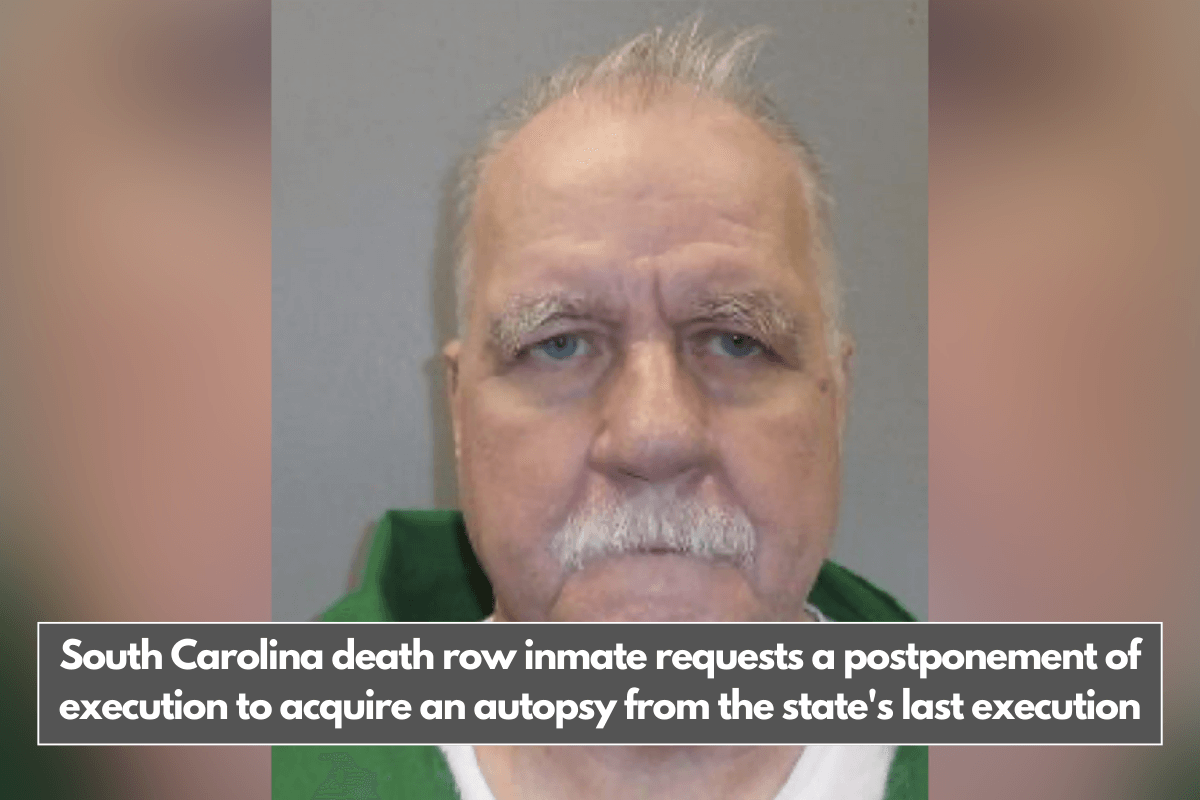A South Carolina death row inmate who is the next person scheduled to be executed by the state is requesting that his execution be postponed again because his lawyers have yet to receive the autopsy report from the previous execution, which occurred two weeks ago.
Brad Sigmon, 67, whose execution is scheduled for March 7, had made a similar request that the state Supreme Court denied earlier this month, but his attorneys said in a motion Friday that the situation has become more urgent because of the Feb. 21 deadline to choose his execution method, which includes lethal injection, firing squad, or electric chair.
Sigmon was convicted of killing his ex-girlfriend’s parents with a baseball bat at their Greenville County home in 2001. Investigators believe Sigmon beat both victims to death while they were in separate rooms.
After murdering the couple, Sigmon kidnapped his ex-girlfriend at gunpoint, but she escaped from his car. He fired at her as she fled, but missed.
“I couldn’t have her, and I wasn’t going to let anybody else have her,” he admitted in a confession.
If Sigmon does not select an execution method, he will be killed by the electric chair, which his attorneys claim he does not want to die in. Next week, Sigmon will choose between lethal injection and firing squad.
He is still hesitant to use lethal injection because witnesses to the three previous executions in the past several months, since the state began using a massive dose of the sedative pentobarbital, claim that despite the inmates appearing to stop breathing and moving in only a few minutes, they were not declared dead for at least 20 minutes.
Only one autopsy report for the executions has been released. According to prison officials, Richard Moore received two large doses of pentobarbital 11 minutes apart on November 1.
According to a defense expert who reviewed the results, Moore may have felt he was drowning or suffocating during the 23-minute period before being pronounced dead due to fluid in his lungs.
Another anesthesiologist who reviewed the autopsy for the state stated that fluid is frequently found in the lungs following a lethal injection, and that witness accounts and other evidence provided no indication that Moore was conscious more than 30 seconds after the sedative was administered.
Prison officials have not revealed why Moore required a second massive dose or whether it is part of their standard procedures, citing a 2023 shield law that keeps the providers of lethal injection drugs, the identities of execution team members, and the procedures used secret.
Corrections Director Bryan Stirling certifies that each method is available in a sworn statement issued following the scheduling of an execution date. According to him, “lethal injection is available via a single dose of pentobarbital.”
Sigmon’s lawyers have yet to see Marion Bowman’s autopsy report, who was executed by lethal injection on January 31. There was no autopsy following Freddie Owens’ execution on September 20, as he requested, citing religious reasons due to his Muslim faith.
Sigmon’s lawyers are seeking additional information about the lethal injection drug. Requests had been denied prior to the previous three executions.
His lawyers also want the execution date postponed so that they can review the autopsy results.
South Carolina, once one of the busiest execution sites, resumed executions in September after a 13-year hiatus caused in part by the state’s difficulty obtaining lethal injection drugs after its supply ran out due to pharmaceutical companies’ concerns about having to disclose they had sold the drugs to state officials.
The state legislature then passed the shield law, which allows officials to keep lethal injection drug suppliers confidential.
The state Supreme Court agreed to keep executions at least five weeks apart, but Sigmon’s lawyers, who also represent others on death row, want to extend the time to 13 weeks so they can thoroughly review previous autopsies and other reports.
South Carolina has executed 46 inmates since the death penalty was reinstated in the United States in 1976. In the early 2000s, the state performed an average of three executions per year. Only nine states have executed more inmates.
